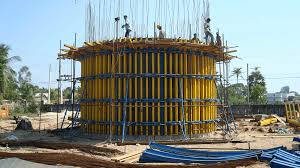જુલાઈ . 25, 2024 06:12 Back to list
Innovative Solutions for Wooden Formwork Construction and Sustainable Building Practices in Modern Projects
The Importance of Wooden Formwork in Construction
In the realm of construction, the quality of a structure often hinges on the effectiveness of its foundational elements. Among these, formwork plays a pivotal role in shaping concrete structures, ensuring that they maintain their intended design and structural integrity. Wooden formwork remains a highly favored choice for many construction projects due to its versatility, cost-effectiveness, and ease of use.
Formwork is essentially a temporary or permanent mold into which concrete is poured. It holds the concrete in place while it sets and gains strength. Wooden formwork, made from timber or plywood, has long been a staple in construction practices around the world. Its advantages stem from several key characteristics that make it an ideal choice for various construction scenarios.
The Importance of Wooden Formwork in Construction
Additionally, wooden formwork is known for its cost-effectiveness. While steel formwork might offer greater durability and longevity, it comes at a higher price point. Wooden formwork, on the other hand, is typically more affordable and can be readily sourced from local suppliers. For smaller projects or those on a tighter budget, using wood can significantly reduce overall costs while still delivering a quality outcome.
wooden formwork construction company

Moreover, wooden formwork provides excellent surface finishes. When properly treated and maintained, wooden panels can yield smooth surfaces that require minimal finishing work once the concrete has cured. This feature is particularly essential for facades and decorative elements, where the appearance of the structure is paramount. The natural texture of wood also adds aesthetic appeal, making it suitable for architectural projects seeking a warm, organic feel.
Another noteworthy advantage of wooden formwork is its lightweight nature. This characteristic makes it easier to handle and transport, reducing the manpower needed for assembly and disassembly. Moreover, since wooden panels can be reused multiple times if properly maintained, they present a sustainable option for builders looking to minimize waste and reduce their environmental impact.
However, it is crucial for construction companies to be aware of the limitations associated with wooden formwork. It may not be as durable as steel alternatives in high-stress applications or areas prone to moisture. Therefore, it is important to assess the specific requirements of a project before deciding on the type of formwork to use. Proper treatment of the wood, including water-repellent coatings, can mitigate some of these issues, but a thorough understanding of material properties is essential for optimal performance.
In conclusion, wooden formwork remains a vital component in the construction industry, providing an efficient, cost-effective, and adaptable solution for shaping concrete structures. Its benefits, ranging from ease of customization to excellent surface quality, make it a preferred choice for many builders. As construction companies continue to innovate and seek sustainable practices, wooden formwork stands out as a timeless material, bridging traditional techniques with modern architectural solutions. Whether it's for residential, commercial, or infrastructural projects, the role of wooden formwork in construction cannot be overstated, as it lays the foundation for buildings that are not only functional but also aesthetically pleasing.
-
Premium Formwork Wing Nuts & Tie Rods | Factory Supplier
NewsAug.29,2025
-
Expert Ringlock Scaffolding: Durable, Safe, Efficient Solutions
NewsAug.28,2025
-
Ringlock Scaffolding: Strong, Safe & Efficient Solutions
NewsAug.27,2025
-
OEM Column Formwork: Circular, Curved & Inclined Solutions
NewsAug.26,2025
-
Premium Scaffolding Jacks: Stable, Adjustable & Durable
NewsAug.25,2025
-
OEM Wall Formwork & Shuttering: Flexible & Curved Solutions
NewsAug.24,2025